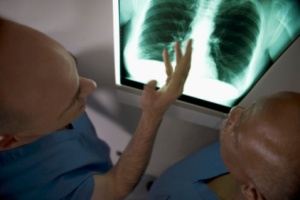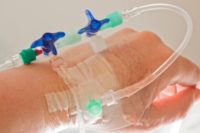 Psychology has played, and will continue to play, a critical role in cancer prevention, treatment and control, according to the flagship journal of the American Psychological Association (APA).
Psychology has played, and will continue to play, a critical role in cancer prevention, treatment and control, according to the flagship journal of the American Psychological Association (APA).
In a special issue of American Psychologist® entitled “Cancer and Psychology,” researchers review the many contributions of psychological science to cancer research, screening, medical adherence, prevention and quality of life, among other related topics. The issue highlights the discoveries and accomplishments that have rooted the psychological sciences as one pillar of cancer control research, practice and policy.
Risk factors
“Up to one-third of the annual cancer diagnoses in the U.S. are attributable in part to risk factors like tobacco use, obesity, physical inactivity and poor nutrition,” according to Paige Green McDonald, PhD, MPH, one of the three scholarly leads on the issue. “Psychological science and evidence-based practice are making important contributions to address the pressing needs of people with cancer.”
The other scholarly leads on the issue were Russell Glasgow, PhD, with the University of Colorado School of Medicine, and Jerry Suls, PhD. Suls and Green McDonald work for the Behavioral Research Program in the Division of Cancer Control and Population Sciences at the National Cancer Institute.
“As evidence linking certain behaviors to cancer risk and outcomes accumulated, psychology emerged as a ‘hub science’ in the nation’s cancer control program,” according to the article “Cancer Control Falls Squarely Within the Province of the Psychological Sciences.” Psychology helps people learn to modify unhealthy behaviors that can lead to disease, and enhances the lives of people who have survived or are living with cancer.
Among the articles in the special issue:
“Fostering Multiple Healthy Lifestyle Behaviors for Primary Prevention of Cancer (PDF, 214KB),” by Bonnie Spring, PhD, Northwestern University Feinberg School of Medicine; Abby King, PhD, Stanford University; Sherry Pagoto, University of Massachusetts-Worcester; Linda Van Horn, PhD, Northwestern University Feinberg School of Medicine; and Jeffrey Fisher, PhD, University of Connecticut.
The odds of developing cancer are increased by behaviors such as smoking, excess alcohol use, physical inactivity, risky sexual behaviors and inadequate sun protection. These behaviors are largely absent in childhood, but emerge and tend to cluster over the lifespan, according to the authors. Even though these risk behaviors are modifiable, few are diminishing in the population over time. The authors review the prevalence and distribution of these behaviors and describe effective or promising healthy lifestyle interventions targeted to the individual, the sociocultural context, or environmental and policy influences.
“Screening for Prevention and Early Diagnosis of Cancer (PDF, 181KB),” by Jane Wardle, PhD, University College London; Kathryn Robb, PhD, University of Glasgow; Sally Vernon, PhD, University of Texas School of Public Health at Houston; and Jo Waller, PhD, University College London
Cancer screenings have become a rite of passage in modern health care. Examinations such as the Pap test and colonoscopy can detect disease before any symptoms are manifest. For other cancers — such as breast, prostate, lung and ovarian — screening can improve outcomes by early diagnosis. However, screening poses risk-benefit considerations for patients. Psychological research can shed light on decision-making processes and help develop strategies to promote greater use of screening, according to the authors.



